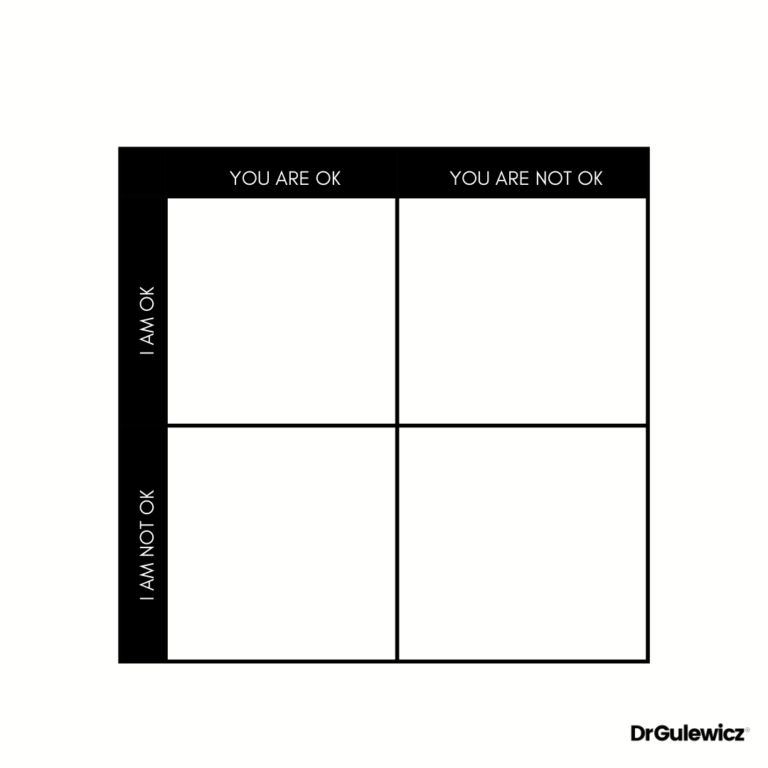Playing games is not an effective way to communicate and manage relationships. It is counterproductive not only business-wise. Let’s take a look at one of the favorite games that people play. It’s called “Life positions”. What can we do to defend ourselves from playing and stay sane.
This one is about “being OK” or “not OK”. This was developed by Eric Berne, and it is called “Life positions”.
Life positions are the basic beliefs that we hold about ourselves and others, which are used to justify our decisions and behaviors.
The idea is that I can be either OK or not about myself. And then also I can have a view about you, whether you’re OK or whether you’re not OK. So, you get this two by two box.

Are you OK?
The question is am I OK or not as a person?
And most people are actually not very OK about themselves. So for example, if you look at your selfie, do you think “Oh, I look amazing”? Or do you think, “Oh no. Is that me? Oh, look at the size of my nose, eww.”
This is of course a question about your personality. But the thing is if you don’t like what you look like and if you don’t like your own face, then how can you feel OK about yourself? And if you’re not OK about yourself, it’s going to lead to problems when you interact with other people.
Are they OK?
The other element is whether other people are OK or not. And ideally, we should be OK about other people. Or at least our starting point should be to give people the benefit of the doubt and to think good about people.
So if somebody’s dog jumps up at you, for example, do you immediately think: “Oh, this dog owner is an idiot”? Or do you think: “Well, he is probably a nice person, and maybe he’s having trouble training that dog”. Would you give the person the benefit of the doubt?
In this example you can see that if you tend to think that people are not OK, then that is a naturally aggressive position to start with. Whereas the assertive person would be calm and fair and would think: “Well, maybe there is a reason behind that and I might ask them about it”. I might tell them I’m not happy about this situation, but the point is I’m sure that deep down they’re decent people.
Four combinations
Now look at the four combinations, you’ve got:
- first one: “I’m OK and you’re not,” and that’s aggressive.
- second one: “I’m not OK, but you are” and that’s submissive, or sometimes called passive, and clearly, that’s going to be a problem as we go through life.
- third one: “I’m not OK, and you’re not OK either.” That’s actually the worst.
- the last one: “I’m OK, and you’re OK” we might disagree about things or there might be misunderstandings, but basically, we’re both OK people and we can work this out.
Let’s be honest we’re all “not OK” in some situations. There are times when we know that we’ve done something bad. And sometimes other people aren’t OK. But the main thing is at least your starting point should be that the other person’s OK.
Want to work together on your leadership skills? Contact me.



3 Comments
דירות דיסקרטיות בצפון · July 27, 2022 at 2:03 PM
Greetings! Very helpful advice in this particular post! It is the little changes that make the most significant changes. Thanks for sharing!
loveroom · July 30, 2022 at 9:13 PM
Itís nearly impossible to find experienced people on this subject, but you sound like you know what youíre talking about! Thanks
Mark · September 7, 2022 at 10:52 AM
Thanks for your blog, nice to read. Do not stop.